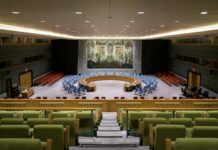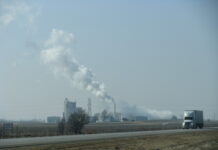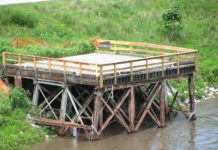Photo credit: DiasporaEngager (www.DiasporaEngager.com).
STATEMENT
Amy Pope | Director General, International Organization for Migration
A year ago, war came to Khadim, a mother of seven children in the Sudanese capital of Khartoum, and she fled 200 kilometers southeast to Medani. And then war came to Khadim in a literal sense: a firefight erupted in Medani and she was caught in the crossfire, shot in the shoulder. To get proper medical attention, Khadim and her family trekked another 240 km further east to Gedaref.
And there Khadim and her family remain, sleeping at night on the ground, in a camp for people displaced by a crisis the world has forgotten.
The current conflict in Sudan began in April 2023, and Khadim and her family are among 8.6 million people displaced by the fighting, one of the biggest displacement crises since World War II. They are also among the 25 million people – more than half of Sudan’s total population – who need humanitarian assistance.
Yet despite the obvious and well-documented need, humanitarian agencies have received just 5 percent of the funds essential to prevent further catastrophe in Sudan this year.
But this crisis is not just about numbers. Within Sudan and across neighboring countries, lives have been shattered and families torn apart. As the fighting spreads, food insecurity is on the rise, health is deteriorating, and abuse and exploitation persist with seeming impunity. These are the consequences of the war in Sudan.
In Paris today, a humanitarian conference gives the international community an opportunity to begin to rectify this situation, to restore the promise of humanity. Aid agencies, including the International Organization for Migration, will present their cases to donor governments, and ask them to help alleviate one of the worst humanitarian crises the world has seen in recent memory.
The sad reality is that the world often reacts to crises far too late, and without financial support from countries all over world, the needs in Sudan are only going to deepen and be more costly. Shelter, food, water, sanitation, and hygiene are among the basics, but so are health and education services, mental health and psychosocial support. We also must do more to provide help and protection to the many survivors of the rampant exploitation and abuse that is one of the effects of this war.
And because the conflict keeps widening, countries that border Sudan also need help. About 2 million people, most of them Sudanese citizens, have migrated away from the worst parts of the Sudan conflict into neighboring countries. This has stressed the capacity of those countries, and especially the communities directly at the borders. We need to ensure that Sudan’s neighbors and the host communities can provide essential services to those coming in.
Without humanitarian assistance, more people impacted by this conflict are going to be displaced, and more will take dangerous risks to cross borders in desperation.
Even with proper funding for our work in Sudan, we are under no illusions that the work will be easy. Humanitarians in Sudan are often targeted by warring parties, and the warehouses and offices of U.N. agencies and aid groups have been looted. Reaching the people who need help is also extremely difficult. In hotspots like Darfur, Khartoum, Aj Jazirah and the Kordofan states, getting help to those who desperately need it has often been close to impossible.
Yet helping people is our job, so we stay and deliver as much as we can. Humanitarian agencies work to ensure that the people of Sudan have not been forgotten that the world is willing to and wants to help.
Beyond the funding, what we need most of all, as we do in so many other parts of the world, is peace. All of us in the humanitarian community ask this of every leader, of anyone who can influence warring parties: people are suffering, their lives are in the balance. Please seek peace.
Source of original article: International Organization for Migration (www.iom.int).
The content of this article does not necessarily reflect the views or opinion of Global Diaspora News (www.GlobalDiasporaNews.com).
To submit your press release: (https://www.GlobalDiasporaNews.com/pr).
To advertise on Global Diaspora News: (www.GlobalDiasporaNews.com/ads).
Sign up to Global Diaspora News newsletter (https://www.GlobalDiasporaNews.com/newsletter/) to start receiving updates and opportunities directly in your email inbox for free.

































